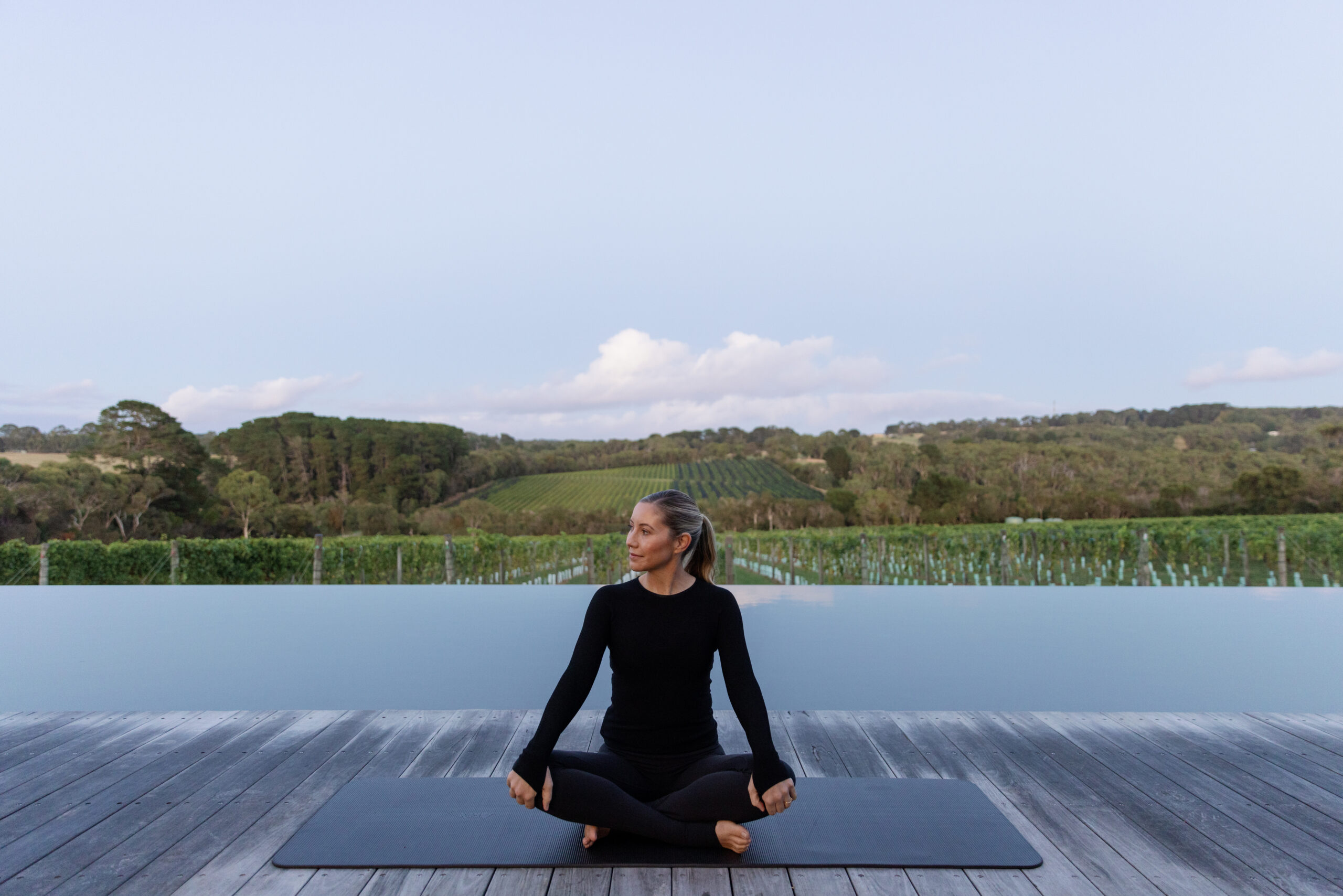It’s no secret that exercise can have a significant impact on our mental health and emotional wellbeing. Post-pandemic, the world actually wants to feel better, rather than look a certain way. Standing taller, looking strong, toned and even younger are just a by-product of moving with purpose and control, in a more prescriptive way. Exercise and specifically Pilates has the ability to rebalance not just the body but our minds.
When we talk about the mind-body connection, we are referring to the link between our emotions and feelings, and our ability to control this. From a physical perspective, effective exercise works to release our feel-good hormones, developing an overall sense of motivation, confidence and empowerment. Emotionally – exercise requires deep concentration and coordination, which strengthens our mind-body connection to help manage our emotions and feelings of stress. Rediscovering this mind-body connection and practising consistent, considered movement, not only helps to improve our happiness, but improves our ability to manage our emotions during times of stress and grief. Movement has gone beyond the prism of exercise – it’s a form of medicine.
- Breathing
At Fluidform, we connect breathing techniques with controlled, targeted movements which require deep concentration and muscle activation. We use our inhale to prepare for each movement, and our exhale to move, which can be highly meditative and stress-relieving. When you allow yourself to consider your breath and move mindfully, you are releasing endorphins (positive hormones) and reducing cortisol (stress hormones).
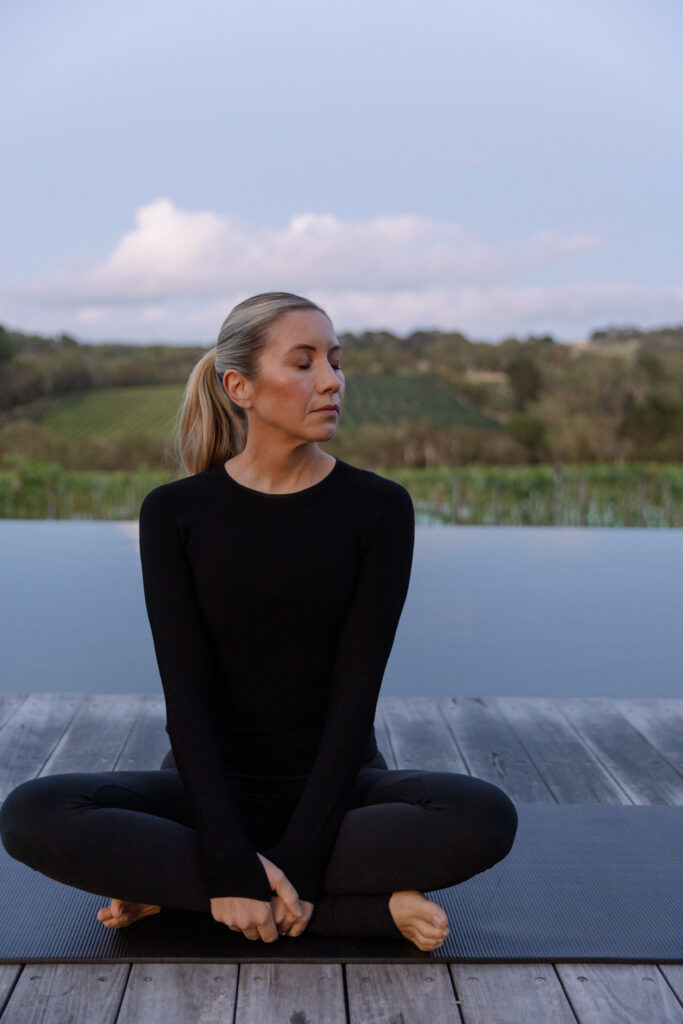
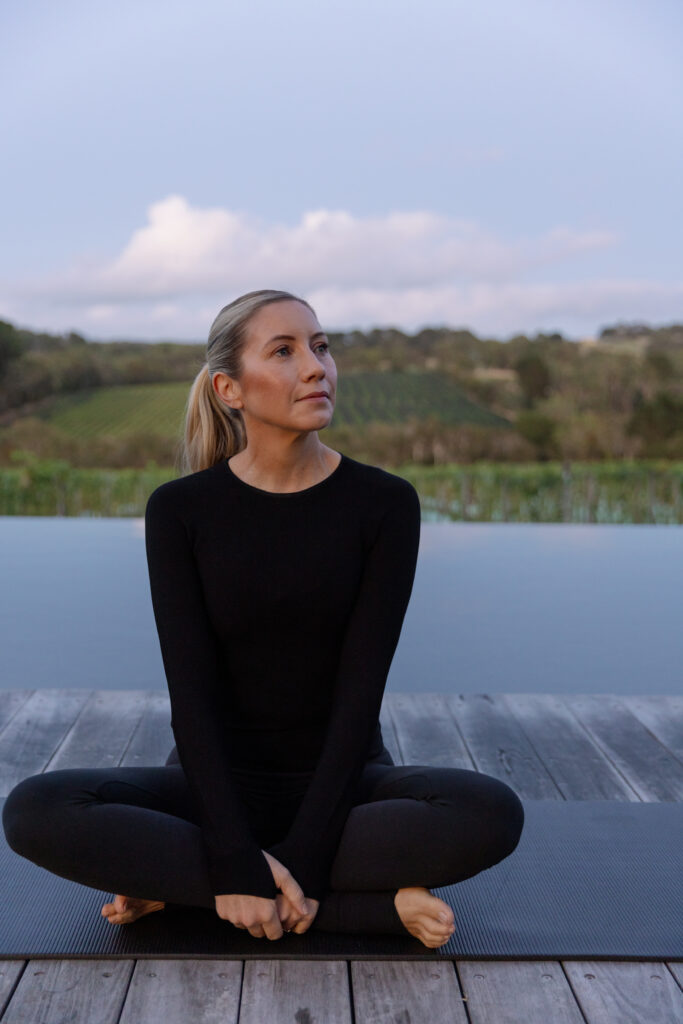
- Low impact, high intensity
This moving meditation (breathwork) combined with layered sequences, high-repetitions and small equipment effectively activates our muscles, challenges our stability, drives our heart rate and gets the blood pumping around the body. Just 20 minutes of Pilates every day has this multifunctional effect to leave you feeling both energised and grounded. When practised consistently, we are entering this state of deep connection, realignment and balance. In this state, we have the ability to manage our emotional response to feelings or grief, stress and sadness and allow our bodies to heal.When we commit to the process of Pilates, practise daily and improve our technique, form and performance, we can experience an overwhelming sense of growth – physical strength and mental empowerment.
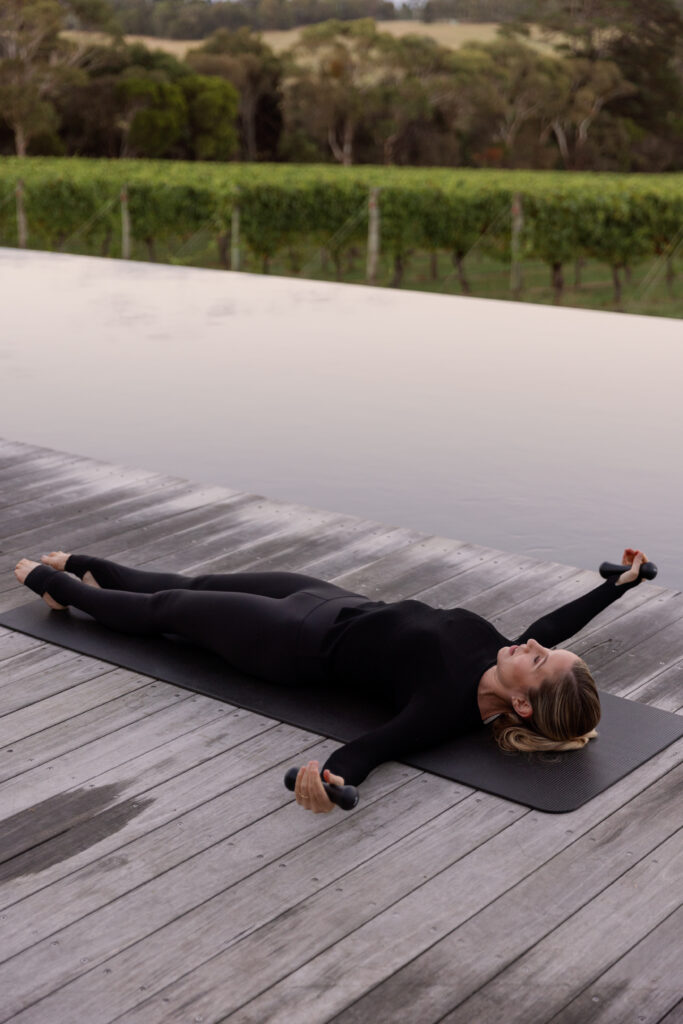
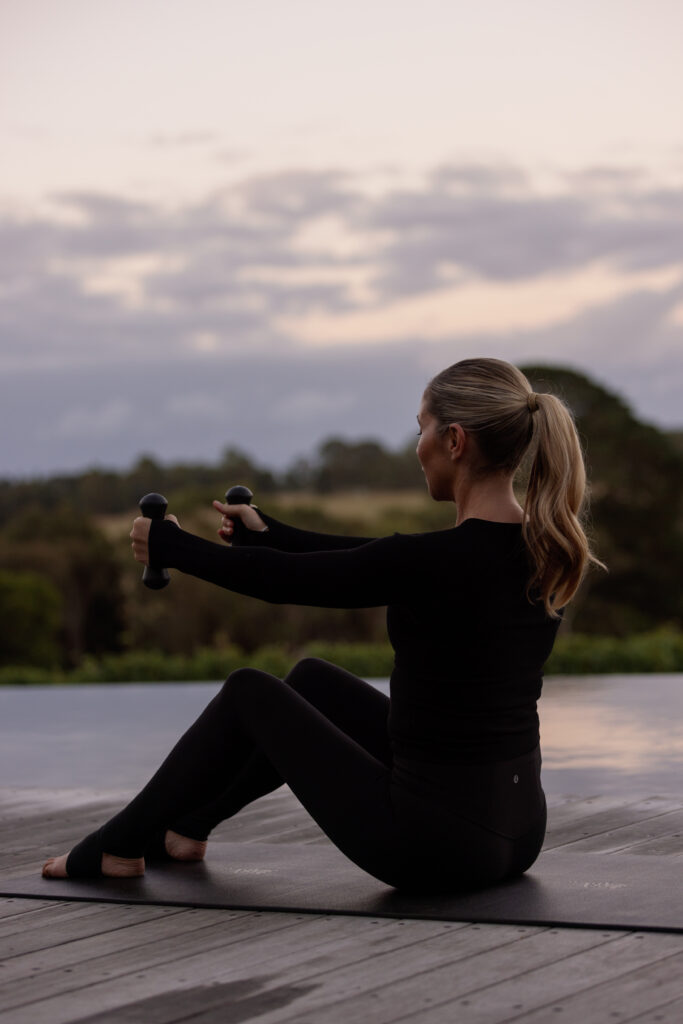
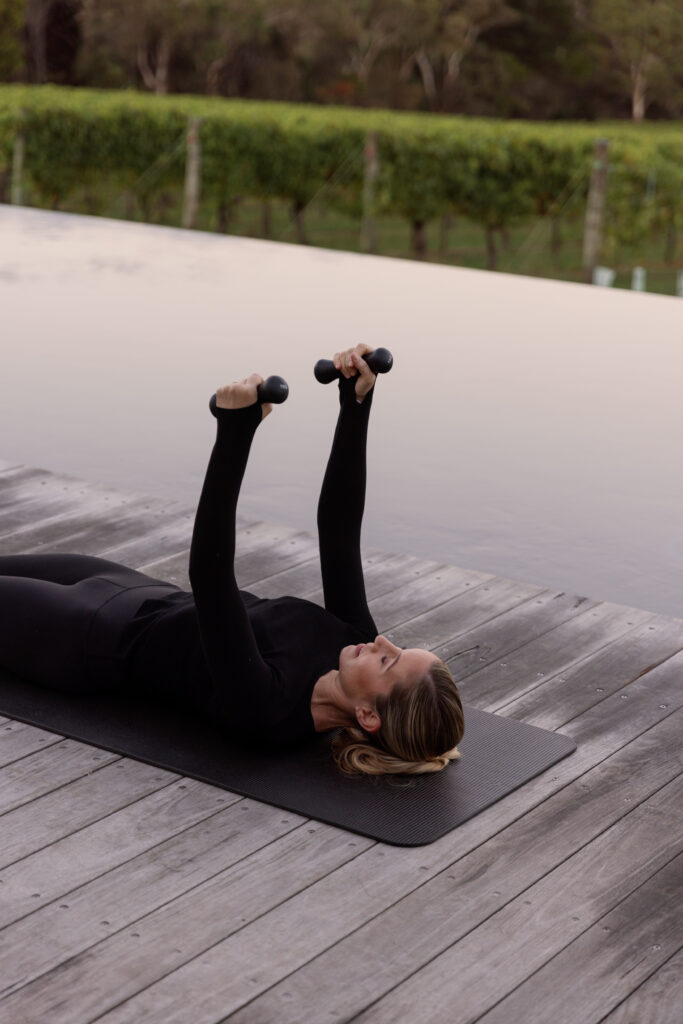
Returning to movement
When we experience trauma, illness or hardship, the period of returning to movement can be daunting. It’s important to take your time, everyone’s recovery will look and feel different. Allow your body the opportunity to heal and when you feel ready, Fluidform can offer a safe space of both mental and physical recovery.
What should you focus on?
- Breathing – to calm and recentre the body, and reposition your ribcage and spine
- Stretching – to find alignment in the body and reduce any tightness or tension
- Strengthen your hips, back and rebuilding your core. When we experience stress and trauma, we often store this stress in the body and begin to feel it in our hips, neck, back and core.
What should you avoid?
- Anything that doesn’t feel right, it usually means you are not ready.
- Avoid any movements which overexert your energy or strength to feel pain. You want to harness your energy and put it towards rebuilding your physical and mental strength, not punishing your body.
Best place to start?
- Returning to movement can be challenging. Find a friend to do it with you. Finish your workout with a coffee to celebrate the small wins.
- Start with the fundamentals to regain your strength and awareness of the body and muscles.
- Find an instructor or teacher you trust and respect.
Start with these workouts. Take them outside, breathe in the fresh air or ask a friend to join you. Embrace how the movements make you feel.
Follow us on @fluidformpilates and join our closed Facebook Group for updates and insights into Fluidform.
Have a question about Fluidform? Get in touch! Email us on ffah@fluidform.com.au
